For decades, mainstream Israeli politicians have taken pride in their fingertip feel for the subtleties of American life and politics. Israeli diplomats know the meeting halls of the Midwest almost as well as they do the breakfast room at the Regency Hotel. So it has been disturbing to see, during the 2008 Presidential race and after, that some right-wing members of the Israeli political élite, along with some ordinary Israelis, often seem to derive their most acute sense of Barack Obama from Fox News and the creepier nooks of the blogosphere.
March 2010 Archives
"From now on, I can never say I didn't know. This, thanks to Hagit Ofran, director of Peace Now's "Settlement Watch," who spends four hours schlepping us around East Jerusalem to see Palestinian properties that have been expropriated by the Israeli government or by Jewish settlers." We're a six-member delegation from Americans for Peace Now, the U.S. counterpart of Ofran's group, and we've come to assess the damage.
2. AIPAC on the Hill this week
3. Members of Congress Express Solidarity with
4.
5.
6. Looking Ahead: Anticipated Congressional Condemnation of UN Human Rights Council
How serious are the discussions? Take a look at the interview that Israel's Vice Premier Moshe (Bogi) Yaalon gave to today's Yedioth Ahronoth. All we are doing is "maneuvering" because of pressure from Peace Now and the US government, Bogi says to Yedioth.
It seems surreal, I know, but most Israelis have never been to the areas of East Jerusalem where the new settler housing is being built. They don't see the construction, the heavy police presence, or the impact on day-to-day Palestinian life.
That's why Peace Now is taking Israelis to see these places. Our reality tours show the tension between the long-time Palestinian residents and the settlers who are moving in. We pull out maps and explain that if these structures are allowed to stand then a two-state solution becomes all but impossible.
Peace Now arms Israelis with the facts they need to dismiss the empty slogans that Netanyahu tosses around like: "building in Jerusalem is the same as building in Tel Aviv." At the end of the tours, everybody understands that the expansion of settlements in East Jerusalem is a deadly provocation, and they are able to explain this reality to their friends, families, and colleagues.
Tomorrow I will lead another tour of the settlements in East Jerusalem. And I want your help to make more tours like this possible. Each tour costs $850. And the number of people who want to join these tours is stretching our Jerusalem education budget.
We need your help to continue these tours. Click here to make a donation.
Peace Now's reality tours are strategic. Some are open to the Israeli public. Others are geared for a targeted audience. Last month we had a bus full of bloggers. Just before that we did a tour with the leadership from one of Israel's political parties.
The tours are just one element of Peace Now's battle against the settlements. We track what takes place in the settlements and make information about their expansion available to the Israeli public. We
hold seminars in universities. We use demonstrations to draw media
attention to dangerous developments.
And we reach out to the
Israeli media: In the last week, Peace Now staff and activists
conducted no less than 7 prime-time interviews with Israeli television
and radio stations.
This media attention whets the appetite of
Israelis who are increasingly hungry to understand what the fuss is
about.
Our goal
is to raise $8,500 before Passover begins on Monday to cover the
costs of 10 tours. I know that with your help we will reach this
goal.
I am both a soldier and a political activist. In
the military I command a combat unit. The expansion of settlements
deepens the occupation. I know from experience what this occupation
does to Israeli soldiers and - even more so - to the Palestinians whose
daily lives are affected.
As a civilian, I am an organizer
with Peace Now. I know that political change comes from the ground up.
Peace Now is the only group in Israel educating and mobilizing everyday
Israelis to push for peace.
Thanks to your ongoing support,
our efforts break past the slogans and the stale debate on the
headlines of the newspapers. Together, we are helping Israelis realize
that expanding settlements in East Jerusalem endangers their security
and threatens Israel's viability as a Jewish and democratic state.
Etai Mizrav
Jerusalem Activities Coordinator
Peace Now
Click here to see photos from the last East Jerusalem reality tour.
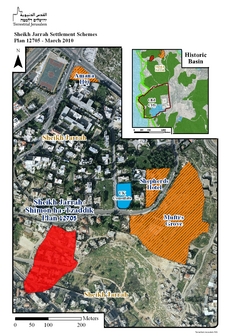 Special to APN from Daniel Seidemann and Lara Friedman
Special to APN from Daniel Seidemann and Lara FriedmanTwo "new" East Jerusalem settlement projects have hit the news in the wake of the Biden debacle - one for the Shepherd's Hotel and the other for the Shimon Ha-Tzaddik neighborhood of Sheikh Jarrah (Click here for a larger map of the area).
Shepherd's Hotel: As is now being widely reported in the Israeli and international press, Israel has issued permits for new settler construction in East Jerusalem.
The details are as follows: on March 18, 2010 the final permits were issued for the construction of 20 units for settlers at the site of the Shepherd's Hotel (a pdf of the actual permit is available here). According to the Municipality, the settlers applied for and paid the fees for the permits on March 15, 2010.
It should be recalled that the Shepherd's Hotel project was approved (final approval) in July 2009. Thus, barring intervention from the government of Israel, the project could have moved forward at any time since then - all that was needed was for the settlers to pay the fees and the issuance of the permits would be automatic.
That said, it is clear that the timing of the settlers' decision to move on this project at this time was neither coincidental or nor innocent. This is why we have been asserting for some months that the day after indirect talks were announced, there would be a provocation in Jerusalem, and it could well be bulldozers knocking down the Shepherd's Hotel.
 Passover is a holiday commemorating freedom and renewal. This year APN is proud to offer to resources for you.
Passover is a holiday commemorating freedom and renewal. This year APN is proud to offer to resources for you. Click here to download a prayer for peace that you can add to your Passover Seder, prepared by Rabbi Esther Lederman of Washington, DC.
Click here for a reflection on the leadership required to part of the Red Sea.
It's a sad day when an Israeli prime minister chooses to impassion a large Washington crowd by defiantly championing and re-committing to a policy that the US administration rejects.
It's a sad day when Israel's prime minister comes to Washington to give a much-anticipated speech that is almost all demagoguery, dogma and defiance rather than vision, courage and leadership.
 **March 21, 2010** - Nir was interviewed as part of a discussion on the Middle East policy of the Obama administration in the aftermath of the recent announcement of housing construction in East Jerusalem during Vice President Biden's visit.
Listen to the audio
**March 21, 2010** - Nir was interviewed as part of a discussion on the Middle East policy of the Obama administration in the aftermath of the recent announcement of housing construction in East Jerusalem during Vice President Biden's visit.
Listen to the audio
Tomorrow, thousands of activists in Washington for the AIPAC conference will be on the Hill claiming to speak for all Americans, and especially American Jews who care about Israel. I know from experience that their agenda is often not the same as ours.
This lobby day comes hot on the heels of the crisis sparked by the announcement - during Joe Biden's visit to Israel - of a massive settlement expansion.
Today Hillary Clinton defended the administration's action on the issue. She told the AIPAC conference that is is America's devotion to peace for Israel that led the administration to condemn the announcement of plans for new construction in East Jerusalem.
"This is about getting to the table, creating and protecting an atmosphere of trust around it - and staying there until the job is done," she said.
Nevertheless, a number of groups have attacked the Obama administration for publicly speaking out about the settlement expansion. You can be sure that this will be a topic discussed during AIPAC's lobby day tomorrow.
Make sure that our voice is heard. Tell Congress that the real pro-Israel thing to do is to stop the expansion of settlements. Settlements undermine the prospect for peace, which is key to Israel's future.
Dear XXXXXX:
Tomorrow, thousands of "pro-Israel" activists will be on the Hill claiming to speak for all Americans, and especially American Jews, who care about Israel. We want you to know: they do not speak for the entire Jewish community.
Most American Jews want Israeli-Palestinian peace talks to succeed and understand that robust, sustained US leadership is needed. We know that sometimes this must include pressure on Israel's government. We also know that Iran poses a serious threat to Israel and US national security interests, and that addressing this threat requires a sober, rational approach, not a knee-jerk reaction that is more reflective of frustration than strategic thinking.
US-Israel relations and the peace process: APN's analysis/comments regarding the http://www.aipac.org/Publications/SourceMaterialsCongressionalAction/Boxer-Isakson_Letter_with_Dear_Colleague.pdf (link has expired) Senate letter, being circulated by Senators Boxer (D-CA) and Isakson (R-GA) are available here. The http://www.aipac.org/Publications/SourceMaterialsCongressionalAction/HoyerCantorLetterDC.pdf (link has expired) House letter, being circulated by Hoyer (D-MD), Cantor (R-VA), Berman (D-CA), Ros-Lehtinen (R-FL), Ackerman (D-NY), and Burton (R-IN) is similar to the Senate version, but different in two key ways. First, it omits the paragraph blaming the Palestinians for the failure to re-start peace talks (the Senate version asserts that it is Palestinian intransigence and preconditions, not Israeli actions, that are to blame). Second, the House letter makes explicit the call for US-Israel disagreements to be handled "quietly" (something that is implied, but not explicitly stated, in the Senate version).
Iran sanctions: Also circulating (and available on AIPAC's website) are AIPAC-backed House and Senate letters urging the President to impose "crippling" sanctions on Iran -- a somewhat odd ask, since the legislation that AIPAC is lobbying for would actually force the president to impose such sanctions, meaning "urging" unnecessary. The letters also urge him to implement his "existing authority" on Iran - an implied criticism that he is not fully implementing the sanctions already imposed under US law. The House version of the letter, being circulated by Reps. Jackson Jr. (D-IL) and Pence (R-IN) is available http://www.aipac.org/Publications/SourceMaterialsCongressionalAction/Jackson-Pence_Letter_with_Dear_Colleague.pdf (link has expired) here. The Senate version, being circulated by Sens. Schumer (D-NY) and Graham (R-SC), is available http://www.aipac.org/Publications/SourceMaterialsCongressionalAction/031910_DC_Iran_Sanctions_Letter.pdf (link has expired) here.
She also made some important, and probably less welcome, statements about the peace process, including:
On settlements and the settlement "moratorium": "We also made clear that this was just a first step and, like every administration for decades, underscored that the United States does not accept the legitimacy of continued Israeli settlements. As Israel's friend, it is our responsibility to give credit when it is due and to tell the truth when it is needed."
On the imperative to achieve peace: "The conflict with the Palestinians and with Israel's Arab neighbors is an obstacle to prosperity and opportunity for Israelis, Palestinians, and people across the region. And it threatens Israel's long-term future as a secure and democratic Jewish state."
On the "demographic threat": "As Defense Minister Barak and others have observed, the inexorable mathematics of demography are hastening the hour at which Israelis may have to choose between preserving their democracy and staying true to the dream of a Jewish homeland. Given this reality, a two-state solution is the only viable path for Israel to remain both a democracy and a Jewish state."
On the linkage between the conflict and extremism: "The status quo strengthens the rejectionists who claim peace is impossible and weakens those who would accept coexistence. That does not serve Israel's interests or our own. Those willing to negotiate need to be able to show results for their efforts. And those who preach violence must be proven wrong. All of our regional challenges -- confronting the threat posed by Iran, combating violent extremism, promoting democracy and economic opportunity - become harder if rejectionists grow in power and influence. Conversely, a two state solution would allow Israel's contributions to the world, and to our greater humanity, to get the recognition they deserve; would allow the Palestinians to realize their own legitimate aspirations; and would undermine the appeal of extremism across the region."
Reiterating US "principles" and policy on final status: "...we believe that through good-faith negotiations, the parties can mutually agree to an outcome which ends the conflict and reconciles the Palestinian goal of an independent and viable state based on the '67 lines, with agreed swaps, and Israel's goal of a Jewish state with secure and recognized borders that reflect subsequent developments and meet Israel's security requirements."
Reiterating US "principles" and policy regarding Jerusalem: "The United States recognizes that Jerusalem is a deeply important issue for Israelis and Palestinians, and for Jews, Muslims, and Christians. We believe that through good faith negotiations the parties can mutually agree on an outcome that realizes the aspirations of both parties for Jerusalem, and safeguards its status for people around the world. For negotiations to be successful, they must be built on a foundation of mutual trust and confidence. That is why both Israelis and Palestinians must refrain from unilateral statements and actions that undermine the process or prejudice the outcome of talks."
Re-iterating US opposition to settlement construction in East Jerusalem: "New construction in East Jerusalem or the West Bank undermines mutual trust and endangers the proximity talks that are the first step toward the full negotiations that both sides want and need. It exposes daylight between Israel and the United States that others in the region could hope to exploit. And it undermines America's unique ability to play a role - an essential role, I might add -- in the peace process. Our credibility in this process depends in part on our willingness to praise both sides when they are courageous, and when we don't agree, to say so, and say so unequivocally."
The Atlantic's Jeffrey Goldberg gets it right in his criticism of AIPAC's http://www.aipac.org/about_AIPAC/Learn_About_AIPAC/2841_32748.asp (link has expired) stacking the panels of its Policy Conference with conservatives and hawks. By not exposing its activists to a broad spectrum of views on Israel, AIPAC does a disservice not only to the 7,000-odd participants but to Israel.
One of the beauties of Israel's political culture - still, despite the efforts of Israel's ultra-nationalists to squash dissent - is the diversity of views and the relative tolerance of conflicting political views. It is a democratically-harmonious, often chaotic, cacophony of opposing views, negotiated in the public arena. Goldberg correctly points out that there seems to be little of that echoing at Washington's Convention Center this week.
The title of this year's AIPAC conference is "Israel: Tell the Story." Does the makeup of the conference's panels really reflect the Israeli narrative? Does it fairly represent the makeup of the pro-Israel community in the United States? How accurate, fair and honest is the story that AIPAC is telling its activists and Israel's supporters on Capitol Hill?
 Nir was interviewed as part of a discussion on the Middle East policy of the Obama administration in the aftermath of the recent announcement of housing construction in East Jerusalem during Vice President Biden's visit.
Nir was interviewed as part of a discussion on the Middle East policy of the Obama administration in the aftermath of the recent announcement of housing construction in East Jerusalem during Vice President Biden's visit.
Many foreign policy experts say that this is the time for Obama to do just that. The Washington Post's David Ignatius, on of America's chief experts on Washington's Middle East policy, advocates such a course of action. His article in Sunday's Post follows. What do you think?
As noted in today's Round-Up, AIPAC will be on the Hill next week lobbying members of Congress to pass "crippling" Iran sanctions and to sign on to letters to the Administration regarding US-Israel relations and the peace process.
The Senate version of that letter, being circulated by Senators Barbara Boxer (D-CA) and Johnny Isakson (R-GA), can now be read here; the Dear Colleague circulating with it can be read here. As expected, it is a carefully crafted, moderate-sounding letter -- an updated version of last year's Bayh-Risch letter. In brief, the letter (addressed to Secretary Clinton):
- implies that the problem with the recent announcement of new Jerusalem settlement plans was a problem of timing, not substance, and that the construction itself is not a serious issue since it will take place sometime in the future ("We write to urge you to do everything possible to ensure that the recent tensions between the U.S. and Israel over the untimely announcement of future housing construction in East Jerusalem do not derail Israeli-Palestinian peace negotiations or harm U.S.-Israel relations.")
- asserts that the failure to re-start Israeli-Palestinian negotiations is entirely due to Palestinian intransigence and in no way due to Israeli actions ("Despite your best efforts, Israeli-Palestinian negotiations have been frozen over the past year. Indeed, in a reversal of 16 years of policy, Palestinian leaders are refusing to enter into direct negotiations with Israel. Instead, they have put forward a growing list of unprecedented preconditions. By contrast, Israel's prime minister has stated categorically that he is eager to begin unconditional peace negotiations with the Palestinians."
- implies that the Obama Administration should not publicly
criticize Israel, even when Israel does things to publicly embarrass it
("We recognize that our government and the Government of Israel will not
always agree on particular issues in the peace process. But such
differences are best resolved amicably and in a manner that befits
longstanding strategic allies."
2. Congress and the Jerusalem Settlements Dust-Up
3. AIPAC on the Hill Next Week
4. Dear Colleague Bashing PA
5. APN on Iran Sanctions, Jerusalem Settlement Issue
I could not find the full poll results in English. So I have translated them. The original Hebrew is here if anybody wants to check my translation.
Petraeus had made the observation that "enduring hostilities between Israel and some of its neighbors present distinct challenges to our ability to advance our interests in the area of responsibility."
"Arab anger over the Palestinian question limits the strength and depth of U.S. partnerships with governments and peoples [in the region]," Petraeus added.
This is common sense. America's interests are directly tied to Middle East peace and to Israel. The U.S. is fighting two wars in the greater Middle East, and is trying to mobilize an international effort to address the threat posed by Iran.
The more likely answer is less sinister but no less ominous: this was just business-as-usual - an Israeli government thumbing its nose at the US, assuming there will be no consequences.
Most insiders agree that Netanyahu probably didn't know in advance about the settlement plan coming up for approval, and that the timing was more about one of Netanyahu's ministers trying to embarrass him than about trying to pick a fight with Washington. But that absolves Netanyahu of nothing. For him to not be keeping track of (and taking control of) Jerusalem settlement plans at this point is either gross negligence or willful ignorance.
And that, too, is business-as-usual: an Israeli Prime Minister who believes it is politically easier and less costly to clash with the US than with his own cabinet or domestic constituencies.
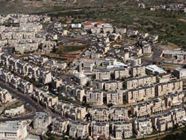
For months APN has been working to get President Barack Obama to step up his efforts in support of peace for Israel. We've called on him to be prepared to confront Israel, the Palestinians, or the Arab states when they fail to play ball.
Last week the Obama administration did just that.
Getting over the sanctions delusion
Recently I was talking with a friend from the military-intelligence world about the mounting pressure on Congress to pass the Iran Refined Petroleum Sanctions Act - legislation aimed at "crippling" Iran's civilian economy. Reportedly a House-Senate conference is already informally underway trying to craft a consensus version of the bill, and last week AIPAC sent a message to every Member of Congress urging that IRPSA be enacted "without delay."
I explained that in my view sanctions aimed at civilians were a bad idea, and that sanctions in general, while a potentially powerful tool, do not, on their own constitute a policy. My friend's response? "Sanctions are the sign of a failed policy, period."
He makes a good point. Fundamentally, sanctions are how the US tells a foreign government: we don't like you, we can't convince you to see things our way, and we can't (or aren't ready to) overthrow you - so get ready to feel some pain.
1. Bills and Resolutions
2. House/Senate/AIPAC Gear Up on "Crippling" Iran Sanctions
3. New APN Policy document - Needed: A Rational Approach to Iran
4. Crowley Circulates Dear Colleague in support of Israeli-Palestinian Coexistence Programs
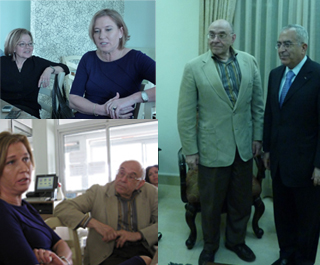 A leadership delegation of Americans for Peace Now, on a fact-finding trip to Israel and the West Bank, met today in Ramallah with Palestinian Prime Minister Salam Fayyad, and in Jerusalem with Israel's Opposition
Chair MK Tzipi Livni.
A leadership delegation of Americans for Peace Now, on a fact-finding trip to Israel and the West Bank, met today in Ramallah with Palestinian Prime Minister Salam Fayyad, and in Jerusalem with Israel's Opposition
Chair MK Tzipi Livni.(Pictures on left: Livni with APN's Debra DeLee & Martin Bresler; right: Fayyad with Bresler)
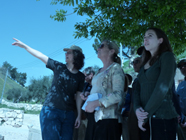 (Special to APN by Daniel Seidemann and Lara Friedman)
(Special to APN by Daniel Seidemann and Lara Friedman)Attention today is riveted on headlines in the Israeli press reporting Israeli plans for 50,000 residential units in East Jerusalem. Coming on the heels of the Biden visit debacle, the interest in this report is unsurprising. Here we offer some information and analysis about the facts behind the headlines and what they mean for the prospects of peace and the two-state solution.
From now on, Biden said, "As we move forward, the United States will hold both sides accountable for any statements or actions that inflame tensions or prejudice the outcome of talks, as this decision did." The decision he was referring to was Israel's decision to build 1,600 new housing units in East Jerusalem. The Obama administration's reaction was swift and harsh. If it reflects the way in which the administration will hold the parties accountable to their actions from now on, it signifies a change in Washington's role as a broker.
following is the full text of Biden's comments at the photo-op, following his meeting with President Abbas:
On 3/9/10 - just in time for the visit to Israel of Vice President Biden and just a day after Special Envoy George Mitchell announced that Israel and the Palestinians had agreed to indirect talks - news broke in the Israeli press that Israel had approved the construction of 1600 new settlement units in East Jerusalem. The decision was strongly condemned by the US, the Palestinians, and the members of the international community. The Arab League, which the previous week had endorsed indirect talks, announced that it would meet March 10 to consider its reaction to the decision.
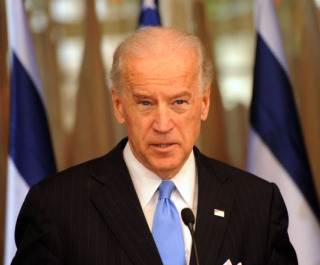 On Monday -- during the vice president's visit to Israel -- American peace envoy George Mitchell announced that Israelis and Palestinians will soon resume peace talks.
On Monday -- during the vice president's visit to Israel -- American peace envoy George Mitchell announced that Israelis and Palestinians will soon resume peace talks.This is good news for those of us who care about peace for Israel. Negotiations are needed to achieve a peace agreement between Israel and the Palestinians.
But then on Tuesday -- while Biden was still in Israel -- the Israeli government announced plans for 1600 new housing units in contested East Jerusalem.
 Washington, DC -- APN welcomes today's announcement that Special Envoy George Mitchell will be brokering indirect talks between Israel and the Palestinian Authority. APN welcomes the involvement of Arab governments in the process that lead to today's announcement.
Washington, DC -- APN welcomes today's announcement that Special Envoy George Mitchell will be brokering indirect talks between Israel and the Palestinian Authority. APN welcomes the involvement of Arab governments in the process that lead to today's announcement. 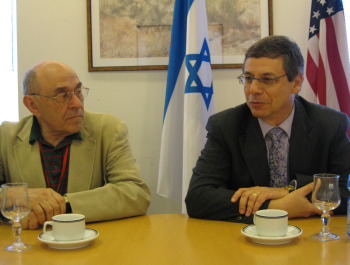
------------------------------
The visit to Israel this week by U.S. Vice President Joseph Biden, along with American Middle East envoy George Mitchell's meetings here, testify to the United States' readiness to not miss the opportunity to advance the peace process.
It looks like Israeli-Palestinian proximity talks are about to commence. What are the circumstances? What are the chances of success?
...In view of Turkey's increasingly dynamic regional role, shouldn't Israel be interested in patching up relations and using Ankara's good offices again vis-a-vis Damascus?
How is the Arab world dealing with the elections in Iraq held yesterday?
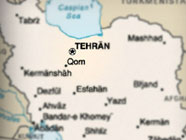

I'm proud to be one of the thousands of Israelis and Palestinians who joined the demonstration on Saturday night in the East Jerusalem neighborhood of Sheikh Jarrah. The crowd, mobilized by a broad range of groups (including the Israeli Peace Now movement), is united in our opposition to settler groups who are evicting Palestinian families and moving into their homes there.
2. FY12 ForOps Season Opens - President's Budget Request
3. FY12 ForOps Season Opens - Hearings
4. SFRC Hearing: MIDDLE EAST PEACE: GROUND TRUTHS, CHALLENGES AHEAD
5. Ros-Lehtinen attacks UNRWA (again)
Most of the graduates, sons and daughters of Jerusalem's diplomatic and foreign community, were on their way to Europe or the US, leaving behind Israeli and Palestinian friends engulfed in raging violence, which at the time seemed endless. The school is located on Hanevi'im Street. It connects East Jerusalem with the center of West Jerusalem. During the Second Intifada, the street was known as "suicide alley." Several Palestinian suicide bombers walked up the street to downtown West Jerusalem to blow themselves up. In one case, a suicide bomber detonated the explosives he strapped to his body just outside the neighboring French School. Body parts flew over the fence into the schoolyard.
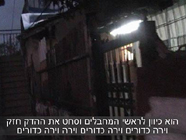
Residents of east Jerusalem neighborhood celebrate holiday with songs of praise for Cave of Patriarchs massacre. Left-wing activists plan protest
As most people know by now, Jerusalem mayor Nir Barkat has agreed to delay his plans to demolish tens of Palestinian homes in Silwan (and at the same time legalize a illegally-built settler high-rise apartment building in the area), following a carefully-worded intervention by Prime Minister Netanyahu (who pointedly did not say he disapproved of the mayor's plan, but rather urged the Mayor to try harder to convince the Palestinians to voluntarily agree to have their homes demolished and to be re-located to some site where the mayor thinks thinks their presence is more welcome/appropriate). The US is reportedly pleased with the Prime Minister's action and the outcome.
This is a great opportunity. Empowering the Iranian people must be a vital part of the American strategy to deal with the threat posed by Iran to Israel and to key American national security interests.
 Alpher answers questions about Palestinian rioting in Hebron and the Syrian "resistance" summit.
Alpher answers questions about Palestinian rioting in Hebron and the Syrian "resistance" summit. By Aviad Glickman

